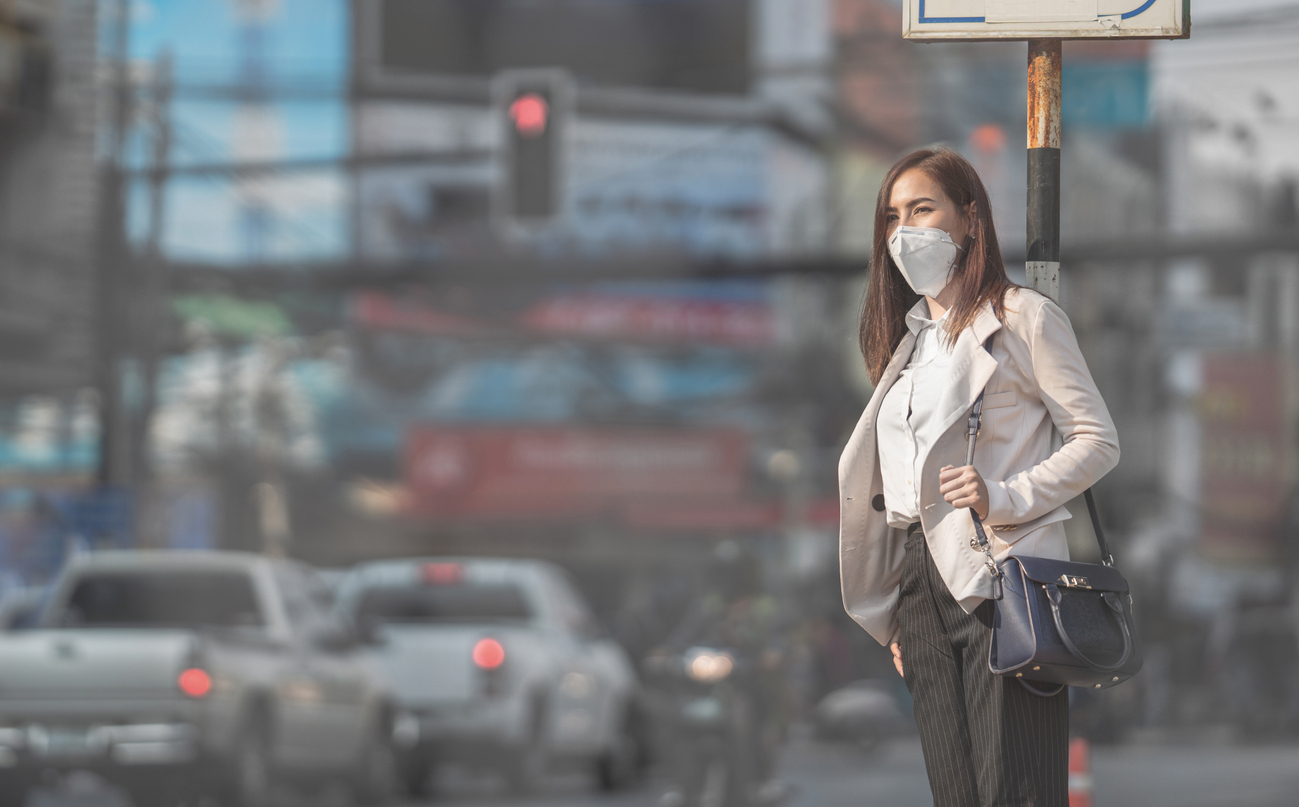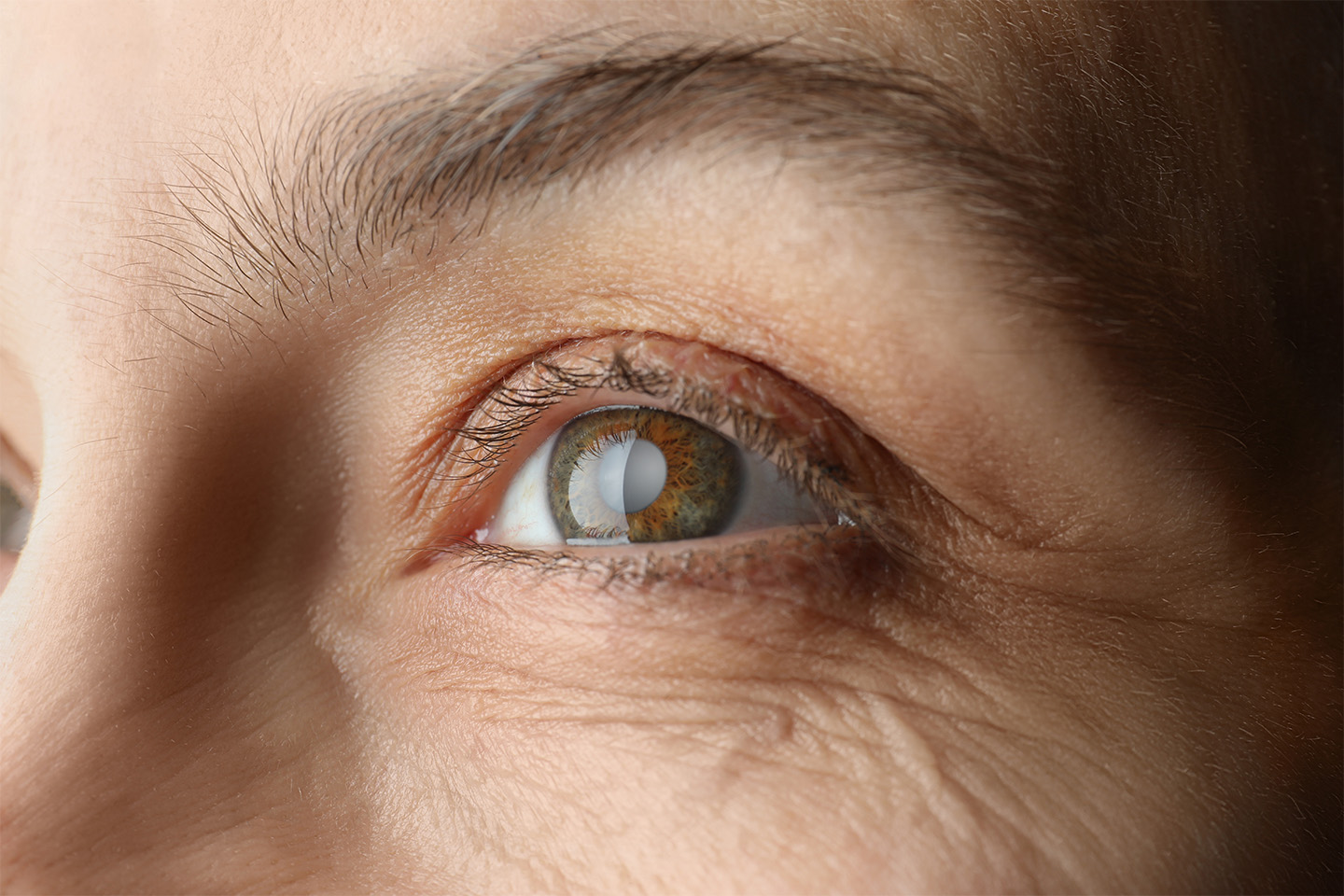Air Pollution Affects Your Eyes, Here’s How

Constant exposure to the air means that our eyes are impacted by air pollution. Here’s how to keep them protected.
We know that air pollution is bad news. Prolonged exposure can lead to respiratory issues, asthma attacks, and even cardiovascular disease. Unfortunately, air pollution can also affect your eyes.
Because our eyes are always exposed to the environment around us, they come into contact with the various allergens, chemicals, and pollutants present in the air. Air pollution levels are on the rise globally, and negative symptoms, from dry eyes and blurry vision, to allergic conjunctivitis and sensitivity to light, are becoming more prevalent.
Here are a few of the most common forms of air pollution and what you can do to help keep your eyes healthy.
How Types of Air Pollution Affect the Eye
Common forms of air pollution include smoke from forest fires, high ozone levels, and daily urban pollution. Each case has the potential to damage the health of your eyes.
Smoke from forest and bushfires often contain dust, chemicals like carbon monoxide and nitrogen oxides, as well as particulates called PM10 and PM2.5, which are small enough to enter deep into the lungs and bloodstream. The fumes and chemicals can also dissolve into the tears that coat the eye, causing irritation or inflammation.
Ozone is a clear, odorless gas found in the upper atmosphere and helps to keep us protected from UV radiation. However, it is also one of the primary ingredients in urban smog. Smog is especially of concern in the summer months when the sunlight and hot weather create harmful concentrations of ozone. These pockets can lead to chronic eye irritation or inflammation.
Several international studies have found links between high levels of air pollution in urban areas and higher occurrences of dry eye, conjunctivitis, and eye infections. Particulates can be especially damaging for people who already experience similar symptoms. Increased levels of nitrogen dioxide can also cause eye irritation, coughing, and nosebleeds.
The best way to protect your eyes from pollutants is to stay indoors when air quality is poor. Sunglasses can help some, but they won’t do much to prevent the particulates from reaching your eyes. If your eyes become irritated, you can flush them with over-the-counter lubricating drops, a sterile saline solution, or bottled water. If you wear contact lenses and experience discomfort, your doctor might suggest switching to dailies to avoid any irritant build-ups from occurring.
Remember that preventing harm to your eyes is important, as high levels of air pollution could increase the risk of serious conditions like age-related macular degeneration and glaucoma.
Other Ways to Protect Your Eyes
As you prepare for the warmer months, here are a few other tips for when pollution is high:
- Always avoid rubbing your eyes, as this will make the irritation worse.
- Wash your eyes with clean, running water morning and night.
- Avoid contacts and eye makeup if your eyes feel itchy or sore.
- If your eyes feel irritated, apply a cool compress to help keep inflammation down.
- Avoid using screen devices like computers and phones for extended periods.
- Make sure you’re getting enough rest.
If you want to learn more about how to protect your eyes from harmful pollutants and chemicals, get in touch with our team of expertly trained specialists at Kleiman Evangelista Eye Centers. We offer treatment options including LASIK, which will help keep your vision clear and sharp for years to come.
Turn To The Top Eye Doctors In Texas
Check out one of our locations below for the best eye care near you:
[DISPLAY_ULTIMATE_SOCIAL_ICONS]








